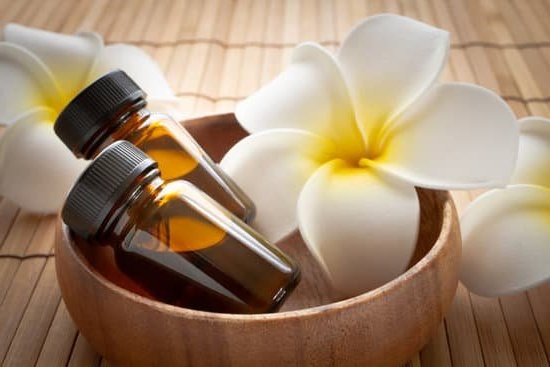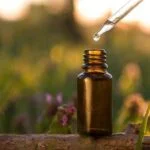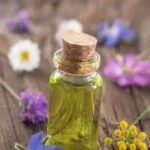Aromatherapy, the practice of using essential oils to enhance physical and psychological well-being, has gained popularity for its therapeutic benefits. What are the benefits of using aromatherapy? In this blog post, we will explore the various ways in which aromatherapy can improve your overall health and quality of life. From reducing stress to boosting immunity and enhancing mental focus, there are numerous advantages to incorporating aromatherapy into your daily routine.
The history of aromatherapy dates back centuries, with origins rooted in ancient civilizations such as Egypt, China, and India. Over the years, this practice has evolved into a widely accepted alternative therapy that complements traditional medicine. Understanding how aromatherapy works involves delving into the science behind how essential oils interact with our bodies and minds, influencing our emotions, thoughts, and physical well-being.
One of the key benefits of aromatherapy is its ability to provide psychological relief by reducing stress and anxiety levels, as well as improving mood and emotional balance. Additionally, aromatherapy offers a range of physical benefits such as pain relief, immune system support, and better sleep quality. By exploring the benefits of using essential oils for skincare, hair care, mental clarity, and focus, you can harness the power of aromatherapy to enhance various aspects of your life.
History of Aromatherapy
Aromatherapy has a long and rich history that dates back thousands of years. The practice of using essential oils extracted from plants for therapeutic purposes can be traced back to ancient civilizations such as Egypt, China, India, and Greece. These cultures recognized the powerful healing properties of aromatic plants and used them in various rituals, ceremonies, and treatments. In Egypt, essential oils were often used in the embalming process and for spiritual purposes.
Over the years, aromatherapy has evolved from being a traditional form of medicine to a popular alternative therapy in modern times. The term “aromatherapy” was coined in the 20th century by a French chemist named Rene-Maurice Gattefosse, who discovered the healing benefits of lavender oil after burning his hand and finding relief with the oil. Since then, aromatherapy has gained widespread popularity for its holistic approach to health and well-being.
The history of aromatherapy is a testament to the enduring power of nature’s remedies. From ancient civilizations to contemporary wellness practices, the use of essential oils continues to provide numerous benefits for physical, emotional, and mental health. Understanding the roots of aromatherapy can help us appreciate its effectiveness in promoting overall wellness and improving quality of life. By incorporating these age-old practices into our modern lifestyles, we can experience the multitude of benefits that aromatherapy has to offer.
How Does Aromatherapy Work?
Aromatherapy works by utilizing essential oils extracted from plants to stimulate the senses and promote physical and psychological benefits. These essential oils are highly concentrated plant extracts that carry the natural fragrance and properties of the plant they are derived from.
When inhaled or applied to the skin, these oils can impact the limbic system in the brain, which is responsible for emotions, memories, and hormonal functions. Additionally, essential oils have chemical components that can be absorbed through the skin or respiratory system, entering the bloodstream and affecting various bodily systems.
Interaction With Body and Mind
The sense of smell plays a significant role in how aromatherapy works. When inhaling essential oils, olfactory receptors in the nose send signals to the limbic system in the brain, which can trigger emotional responses and impact cognitive function. This direct connection between scent and brain activity explains why certain aromas can evoke strong feelings or memories. The absorption of essential oil compounds through the skin also allows for systemic effects on the body beyond just aromatherapy’s pleasant scents.
The Science Behind Aromatherapy
Scientific studies have started to validate some of the claims made about aromatherapy’s benefits. Research suggests that certain essential oils have antimicrobial properties that can help fight off infections, while others have anti-inflammatory effects that can reduce pain and inflammation.
Furthermore, some essential oils have been found to positively affect neurotransmitters in the brain, leading to improvements in mood and cognitive function. These findings contribute to a growing understanding of how aromatherapy works on a physiological level to promote overall well-being.
Psychological Benefits of Aromatherapy
Aromatherapy has long been used as a natural remedy to promote psychological well-being and emotional health. The use of essential oils derived from plants, flowers, and herbs can have a profound effect on reducing stress and anxiety levels, ultimately improving one’s mood and overall mental state. Aromatherapy works by stimulating the olfactory system, which then sends signals to the brain, triggering a release of neurotransmitters that can have calming or uplifting effects.
Here are some of the key psychological benefits of using aromatherapy:
- Reduction of Stress and Anxiety: Certain essential oils like lavender, chamomile, and rosemary have calming properties that can help alleviate feelings of stress and anxiety. Simply inhaling these fragrances or using them in a diffuser can promote relaxation and a sense of well-being.
- Improvement in Mood and Emotional Well-being: Aromatherapy has been shown to positively impact mood by stimulating the limbic system in the brain, which is responsible for emotions and memories. Oils such as bergamot, ylang-ylang, and citrus scents are known for their uplifting effects, making them great choices for improving emotional balance.
Incorporating aromatherapy into your daily routine can be a simple yet effective way to support your mental health. Whether you choose to use essential oils through diffusers, massages, baths, or inhalation methods, the benefits can be far-reaching. By taking advantage of the natural healing properties of essential oils, you can experience improved psychological well-being and a greater sense of peace and calm in your life.
Physical Benefits of Aromatherapy
Aromatherapy offers a wide range of physical benefits that can positively impact overall well-being. One of the primary advantages of using aromatherapy is pain relief. Certain essential oils like eucalyptus, lavender, and peppermint have analgesic properties that can help alleviate headaches, muscle pain, and other discomforts. These oils can be used in massage therapy or through inhalation to provide natural relief from various types of physical pain.
In addition to pain relief, aromatherapy can also help boost the immune system. Essential oils such as tea tree, lemon, and oregano have antibacterial and antiviral properties that can strengthen the body’s defense mechanisms against infections and illnesses. By incorporating these oils into a regular aromatherapy practice, individuals may experience fewer instances of falling ill and enjoy an improved overall health.
Furthermore, another significant benefit of using aromatherapy is its ability to improve sleep quality. Essential oils like chamomile, valerian root, and lavender are known for their calming effects on the mind and body, which can promote relaxation and enhance the quality of sleep.
By diffusing these oils in the bedroom before bedtime or adding them to a bath routine, individuals may experience deeper and more restful sleep cycles. Overall, the physical benefits of aromatherapy contribute to a holistic approach to health and well-being.
| Physical Benefits | Key Information |
|---|---|
| Pain Relief | Aromatherapy essential oils like eucalyptus and peppermint have analgesic properties. |
| Boosting Immune System | Tea tree oil and lemon oil are known for their antibacterial effects. |
| Improvement in Sleep Quality | Lavender and chamomile essential oils promote relaxation for better sleep. |
Aromatherapy for Skin and Hair Care
Aromatherapy is not only beneficial for emotional and physical well-being but can also work wonders for skin and hair care. Incorporating essential oils into your skincare routine can provide nourishment, hydration, and rejuvenation to your skin. Similarly, using essential oils for hair care can help improve scalp health, strengthen hair follicles, and promote healthy hair growth.
There are numerous benefits of using aromatherapy for skin and hair care. Here are some key advantages:
- Essential oils have natural antibacterial and anti-inflammatory properties that can help in treating various skin conditions such as acne, eczema, and psoriasis.
- Many essential oils are rich in antioxidants that protect the skin from environmental damage and signs of aging.
- The aromatherapeutic properties of essential oils can promote relaxation, reduce stress levels, and contribute to glowing skin.
When it comes to hair care, essential oils can be used to improve the overall health of your scalp, stimulate hair growth, and add shine to your locks. Different essential oils offer unique benefits for hair:
- Lavender oil: Known for its calming effects on the mind, lavender oil can also help balance oil production on the scalp and promote hair growth.
- Rosemary oil: Stimulates blood circulation in the scalp, which in turn promotes hair growth and prevents thinning.
- Peppermint oil: Has a cooling effect on the scalp while promoting hair thickness and increasing circulation.
Incorporating aromatherapy into your skincare and hair care routines can enhance not just the physical appearance but also the overall health of your skin and hair. Experimenting with different essential oils based on your specific needs can lead to a transformative experience that leaves you feeling rejuvenated inside out.
Aromatherapy for Mental Clarity and Focus
When it comes to enhancing mental clarity and focus, aromatherapy can be a powerful tool. Certain essential oils have properties that can help sharpen concentration, improve cognitive function, and promote mental alertness. One of the key benefits of using aromatherapy for this purpose is its ability to stimulate the limbic system in the brain, which is responsible for emotions, memories, and motivation. By inhaling specific essential oils, individuals may experience a boost in mental clarity and focus.
Rosemary essential oil is known for its stimulating properties that can enhance memory retention and increase alertness. Peppermint essential oil is another popular choice for promoting mental clarity due to its invigorating scent that can help combat mental fatigue. Additionally, lemon essential oil has been found to have mood-boosting effects while also improving concentration levels. These are just a few examples of essential oils that can be used in aromatherapy practices to support mental clarity and focus.
Incorporating aromatherapy into daily routines to improve mental clarity and focus doesn’t have to be complicated. Simple methods such as using an essential oil diffuser in your workspace, creating a personal inhaler with your favorite essential oils, or adding a few drops of essential oil to a warm bath can make a significant difference.
With regular use and experimentation with different blends of essential oils, individuals can discover what works best for them in terms of enhancing their cognitive function through aromatherapy.
| Essential Oil | Benefits |
|---|---|
| Rosemary | Enhances memory retention and increases alertness |
| Peppermint | Invigorating scent combats mental fatigue |
| Lemon | Mood-boosting effects while improving concentration levels |
Safety Precautions and Tips for Using Aromatherapy
Aromatherapy is a holistic healing treatment that uses natural plant extracts, known as essential oils, to promote overall well-being. These essential oils are extracted from various parts of plants and can be used in a variety of ways, such as through inhalation, topical application, or even ingestion (in some cases). The benefits of using aromatherapy are vast and varied, ranging from physical to psychological effects.
When it comes to using aromatherapy safely, there are a few key precautions to keep in mind. Firstly, it is essential to dilute essential oils with a carrier oil before applying them directly to the skin. This helps reduce the risk of irritation or allergic reactions, especially for those with sensitive skin. Additionally, certain essential oils should be avoided during pregnancy or if you have specific medical conditions, so it’s crucial to do your research before using them.
Incorporating aromatherapy into your daily routine can be a simple and effective way to reap its benefits. Whether you choose to diffuse essential oils in your home, add a few drops to your bathwater for relaxation, or apply them topically for skincare purposes, there are numerous ways to enjoy the therapeutic effects of aromatherapy.
By following safety precautions and exploring different methods of use, you can experience firsthand what are the benefits of using aromatherapy for your overall health and well-being.
Conclusion
In conclusion, the benefits of using aromatherapy are vast and impactful on both the body and mind. From the psychological advantages like reducing stress and anxiety, to the physical benefits such as pain relief and boosting immune functions, aromatherapy offers a holistic approach to well-being. Additionally, incorporating essential oils into skincare and hair care routines can bring nourishment and rejuvenation to the skin and hair.
Furthermore, aromatherapy has shown promising results in improving mental clarity and focus through the use of specific essential oils that enhance concentration. This practice can be particularly beneficial for those looking to boost their cognitive function and productivity. It is important to note that when using aromatherapy, safety precautions must be followed to ensure proper usage of essential oils without any adverse effects.
In essence, exploring the world of aromatherapy can open up a plethora of benefits for individuals seeking natural ways to improve their overall well-being. Whether it’s for relaxation, mood enhancement, or even skincare needs, there is a wide range of essential oils that cater to various health concerns. By incorporating aromatherapy into daily routines with proper guidance and awareness, individuals can experience the transformative effects that these natural remedies have to offer.
Frequently Asked Questions
Does Aromatherapy Really Help?
Aromatherapy can be beneficial in promoting relaxation, reducing stress, and improving mood. While scientific evidence is limited, many people find that certain scents can have a positive impact on their well-being.
How Does Aromatherapy Work on the Body?
Aromatherapy works on the body by inhaling essential oils through the nose or absorbing them through the skin. The molecules in the oils then interact with the limbic system of the brain, which plays a role in emotions, memory, and behavior.
What Are the Psychological Benefits of Aromatherapy?
The psychological benefits of aromatherapy include reducing anxiety, improving sleep quality, and enhancing overall mental well-being. Certain scents like lavender or chamomile have been shown to have calming effects on the mind and body.

Are you looking for a natural way to improve your health and wellbeing?
If so, aromatherapy may be the answer for you.





